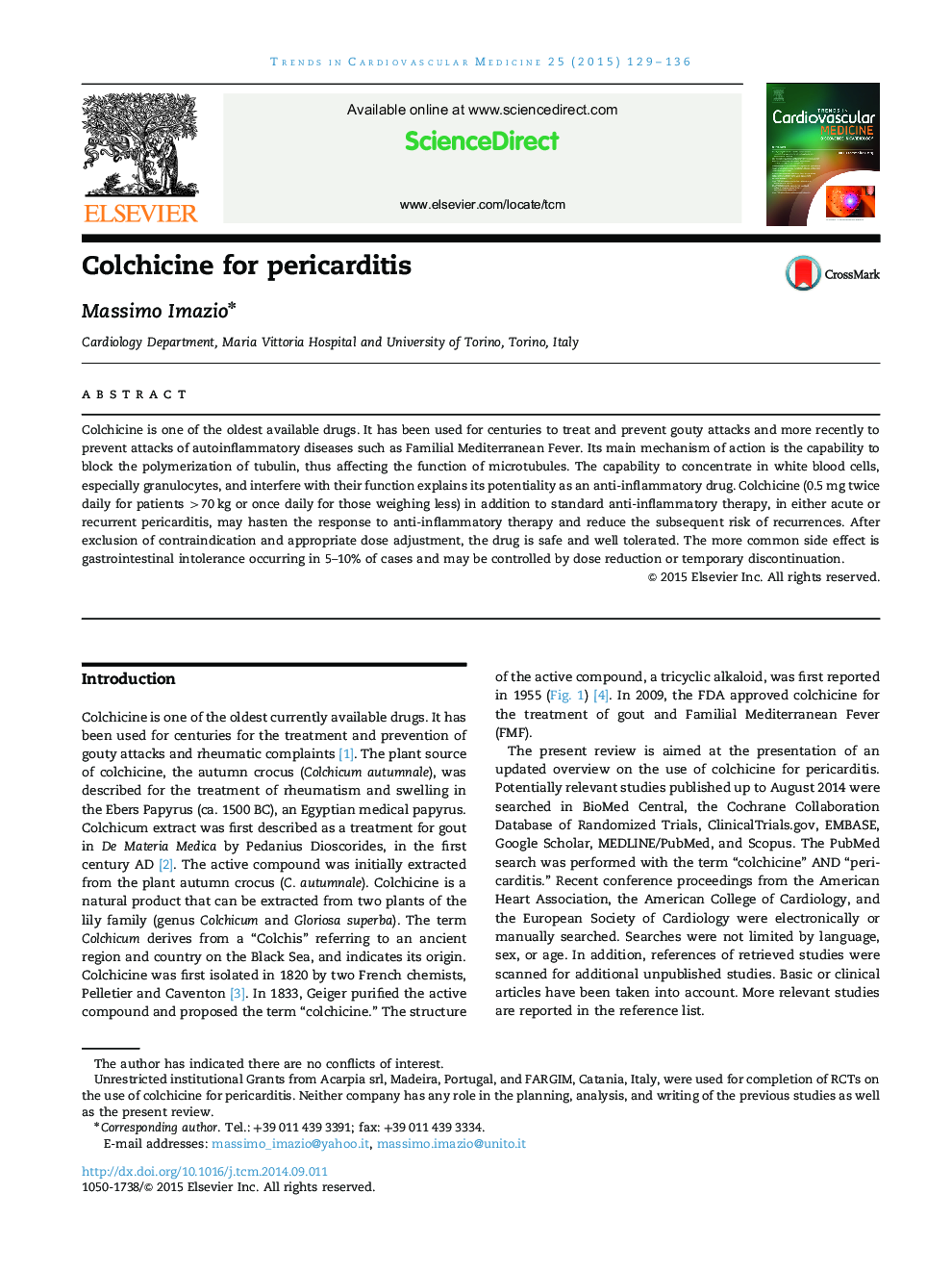| Article ID | Journal | Published Year | Pages | File Type |
|---|---|---|---|---|
| 6003715 | Trends in Cardiovascular Medicine | 2015 | 8 Pages |
Colchicine is one of the oldest available drugs. It has been used for centuries to treat and prevent gouty attacks and more recently to prevent attacks of autoinflammatory diseases such as Familial Mediterranean Fever. Its main mechanism of action is the capability to block the polymerization of tubulin, thus affecting the function of microtubules. The capability to concentrate in white blood cells, especially granulocytes, and interfere with their function explains its potentiality as an anti-inflammatory drug. Colchicine (0.5Â mg twice daily for patients >70Â kg or once daily for those weighing less) in addition to standard anti-inflammatory therapy, in either acute or recurrent pericarditis, may hasten the response to anti-inflammatory therapy and reduce the subsequent risk of recurrences. After exclusion of contraindication and appropriate dose adjustment, the drug is safe and well tolerated. The more common side effect is gastrointestinal intolerance occurring in 5-10% of cases and may be controlled by dose reduction or temporary discontinuation.
